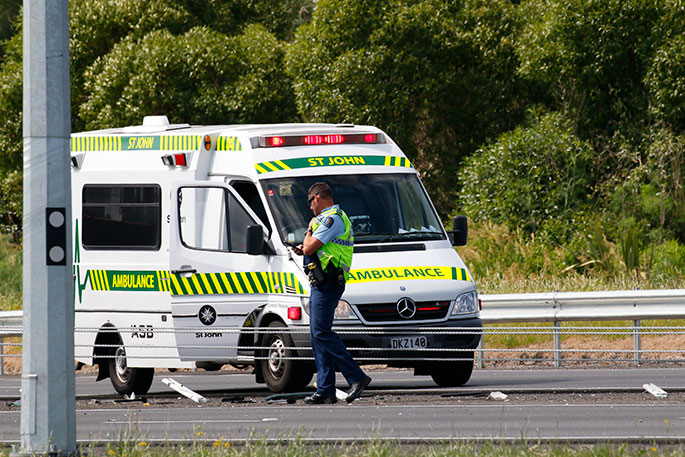More road deaths in 2017 involved drivers with drugs in their system than over the alcohol limit, figures obtained by the AA reveal.
The table below shows the number of crash deaths where a driver subsequently tested positive for some form of potentially impairing drug and compares those numbers to crash deaths involving a drunk driver.
Some drivers will have tested positive for both drugs and alcohol.
|
Drivers involved in fatal crashes annually |
||
|
|
Drugs proven |
Alcohol above limit or test refused |
|
2017 |
79 |
70 |
|
2016 |
59 |
67 |
|
2015 |
27 |
66 |
|
2014 |
14 |
48 |
|
2013 |
14 |
53 |
|
Figures from the Crash Analysis System that records details of road crashes in NZ. |
||
'These figures confirm how big a problem drugged driving is on our roads and why we have to give Police saliva-based testing devices to catch impaired drivers,” says AA road safety spokesperson Dylan Thomsen.
'We now have more crash deaths where people test positive for a drug than alcohol – it's time to act.”
The AA is reiterating its Election Call from last year for the Government to give Police more tools to test and catch dangerous drugged drivers on our roads.
Excluding alcohol, the two most commonly detected individual drugs were cannabis and P. A particularly worrying trend is that the cases of P being detected has shot up in recent years. A range of other drugs and medications that impair driving also feature in the results.
While the numbers look like drugged driving has suddenly skyrocketed, the AA believes the big jump is likely down to more thorough testing being done following crashes.
'The number of drivers found to have drugs in their system is no surprise to the AA,” says Dylan.
'The AA has called drugged driving a silent killer on our roads for years and these latest figures confirm how prevalent drugs are in fatal crashes.
'No one wants someone who is high driving towards their family at 100kmh but right now the chances of being caught drugged driving is tiny. We have to change that.
'95 per cent of AA Members in our surveys support introducing saliva-based drug testing.”
The current system for Police to test a driver for drugs requires an officer to have strong cause to suspect drug use and then take close to an hour to take the driver to a Police station for an old-fashioned walk-and-turn test.
”Right now we don't believe the Police have the tools they need to get drugged drivers off the road and deter people from doing it,” says Dylan.
'The current system almost needs a driver to be sitting in the car with drugs on the seat next to them to get tested and the current test takes up a huge amount of an officer's time – meaning the chances of drugged drivers being caught are slim.
'The saliva testing devices being used in many other countries would be much faster and allow many more potentially drug impaired drivers to be tested than the current approach.”
Although the saliva tests would initially only detect common illicit drugs (like cannabis, P and ecstasy), the AA believes it is better to test for some impairing substances rather than none.
'Random roadside drug testing would send a strong message that you're endangering yourself and others if you drive impaired, and this doesn't just apply to alcohol,” says Dylan.
A question the AA commonly hears is whether testing devices could detect drug use from well before when someone was driving? Because the testing devices use saliva they are designed to catch people who have used drugs within a few hours of getting behind the wheel.
An initial positive test can also be followed by a second test to confirm the result is accurate.
'The AA knows there are opponents of roadside drug testing who have concerns about the accuracy and speed of the devices but these can be answered by using them in a targeted way and having confirmation tests to double-check results.
'Drug testing does cost more than alcohol testing but the Ministry of Transport has estimated that every dollar spent would deliver $8 in savings from having fewer crashes on our roads.
'Drug testing of drivers is working in Australia, the UK, France, the Netherlands, Norway, Denmark and Ireland and it can work here.”
* The figures come from testing that is done by authorities following a fatal crash and where there was evidence that a driver was affected by a drug likely to have impaired their driving ability. Illegal drugs, prescription medication known to impair driving or levels of substances above medical recommendations are all included in the drugs proven figure.



3 comments
Well done,
Posted on 14-06-2018 09:47 | By Marshal
Now we need to know the breakdown of the drug's that were tested for, and the drugs present in the system. there are numerous different drugs being dealt out to the public from many sources..
govt to slow to act
Posted on 14-06-2018 11:06 | By hapukafin
One drug related death is one too many.They lump all road deaths together to make it sound like its all alcohol relatedWhy hasnt the AA put more pressure onto the government and why hasnt the government acted on the survey for testing drivers,many other countries do,they keep dwelling on drink drive.The average person on the street can recognise individuals that are spaced out like zombies when drugged up
Really?
Posted on 14-06-2018 14:52 | By triplediamond
NZ can’t even control sober, undrugged drivers let alone dopeheads and druggies! The driver’s licence system needs a huge shakeup otherwise the crash rate and road toll will continue to rise. Simple really.
Leave a Comment
You must be logged in to make a comment.